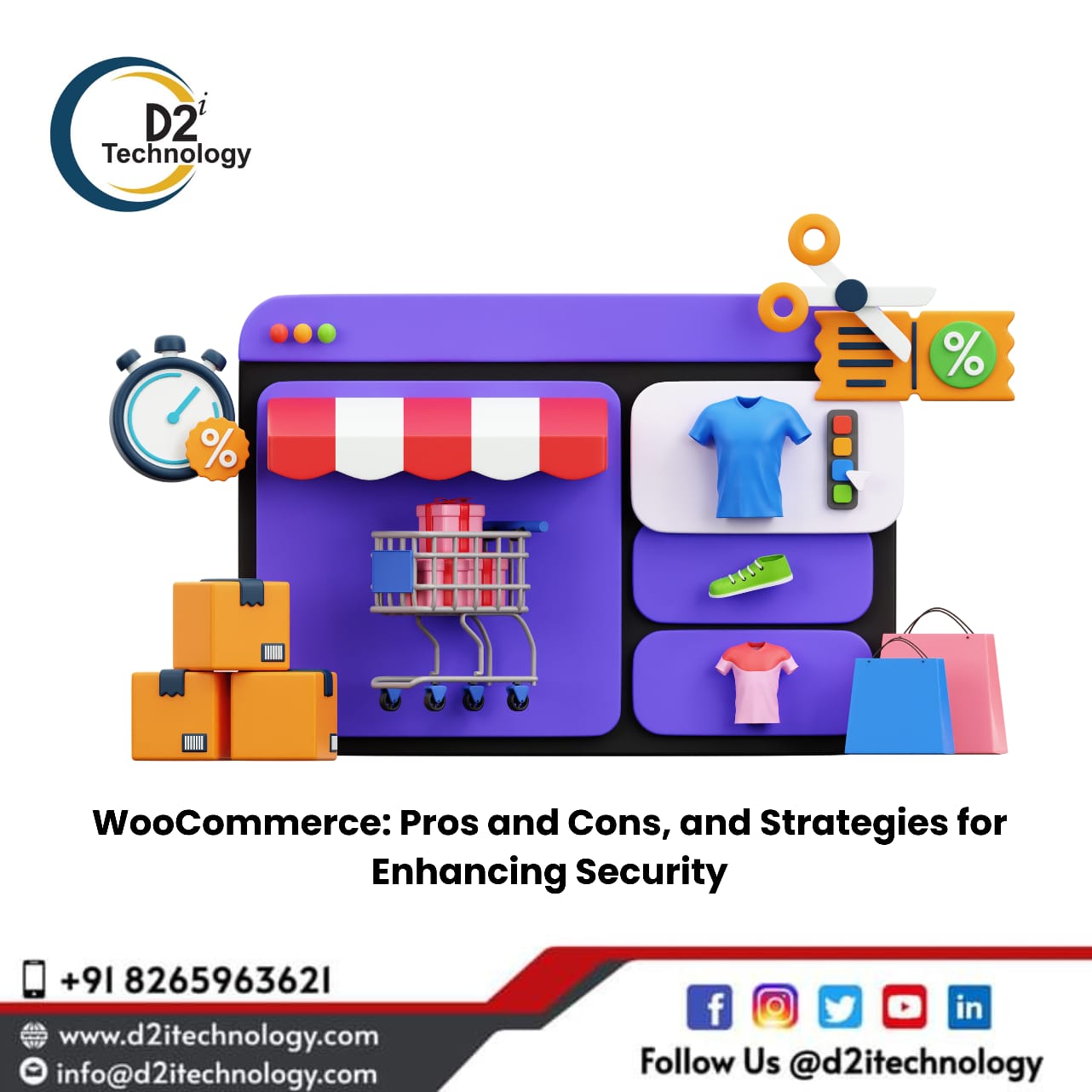- Security
- March 27, 2024
- admin
WooCommerce: Pros and Cons, and Strategies for Enhancing Security

Explore the world of WooCommerce with its myriad of benefits and potential drawbacks. Discover how its flexibility, integration with WordPress, and cost-effectiveness make it an attractive choice for businesses of all sizes, while also acknowledging challenges such as technical requirements and security vulnerabilities. Learn valuable strategies to enhance the security of your WooCommerce store and safeguard it against potential risks and attacks, ensuring a secure and efficient e-commerce platform.
Pros of using WooCommerce:
- Flexibility: WooCommerce offers extensive customization capabilities, empowering businesses to tailor their online stores to their unique requirements.
- Integration: Seamlessly integrates with WordPress, providing access to a wide array of plugins and extensions for enhanced functionality.
- Cost-effectiveness: Being free to use, WooCommerce provides an economical solution suitable for businesses of all sizes.
- User-friendly: Boasts a user-friendly interface, simplifying the setup and management of online stores, particularly for beginners.
- Scalability: Adaptable to business growth, enabling the addition of new products, features, and extensions as necessary.
- Cost: Lower regular development costs compared to other platforms.
- Beginner-friendly: Ideal for beginners looking to conduct proof-of-concept (POC) projects.
Cons of using WooCommerce:
- Technical Knowledge: Requires some technical expertise for customization and troubleshooting, despite its user-friendly nature.
- Dependency on WordPress: Vulnerable to issues with WordPress, potentially impacting the functionality of the online store.
- Performance: May exhibit slower performance, especially when managing large product catalogs or experiencing high traffic volumes.
- Limited Support: Official support options may be constrained compared to other e-commerce platforms, despite the extensive user and developer community.
- Additional Costs: While the core WooCommerce plugin is free, expenses may be incurred for premium extensions, themes, or developer services.
- Security Vulnerabilities: Susceptible to security threats due to the underlying WordPress platform, necessitating robust security measures.
- Customization Costs: Customization can be expensive, adding to the overall investment required for tailoring the platform to specific business needs.
- Not recommended for scaling businesses: Searches with filters can degrade performance.
- Challenging migration to other platforms as WooCommerce serializes data.
- Custom reporting is challenging.
- WordPress is known for data leaks and is easily hacked.
How to enhance the security of your WooCommerce store and protect it from potential security risks and attacks:
- Regular Updates: Ensure WooCommerce, WordPress, themes, and plugins are regularly updated to patch security vulnerabilities.
- Secure Hosting: Choose a reputable hosting provider offering SSL encryption, firewalls, malware scanning, and Web Application Firewall (WAF) protection.
- Strong Passwords: Enforce strong password policies and avoid default usernames like “admin.”
- Two-Factor Authentication (2FA): Implement 2FA for additional security.
- Secure Payment Gateways: Use PCI-DSS compliant payment gateways.
- Regular Backups: Perform regular backups for data restoration.
- Limit User Access: Restrict access to sensitive areas of the dashboard.
- Disable Directory Indexing: Prevent directory indexing to avoid exposure.
- Monitor Activity: Track user activity and website traffic for anomalies.
- Security Plugins: Install specialized security plugins like Wordfence or Sucuri.
Latest News

Transform Your Business with Top Web Development
June 30, 2025

Steps to Optimize Your Manual Testing Process
June 16, 2025
Category
- Accessibility Services (19)
- Accessibility Testing (6)
- Application Development (5)
- Automation Testing (4)
- CDN Technology (1)
- Developer Tools (5)
- DevOps (28)
- DevOps Consulting Companies (2)
- DevOps Services (2)
- Digital Marketing (5)
- Game Testing (1)
- IT Services (8)
- Manual Testing (6)
- Mobile Development (4)
- Operating Systems (2)
- SecOps (1)
- Security (1)
- Software Development (2)
- Software Quality (2)
- Software Testing Companies (1)
- Testing (1)
- Uncategorized (4)
- Web Application (2)
- Web Designing (3)
- Web Development (6)
- Web Development Companies (6)
- Website Accessibility (16)
- Website Services (3)
- WordPress (2)
